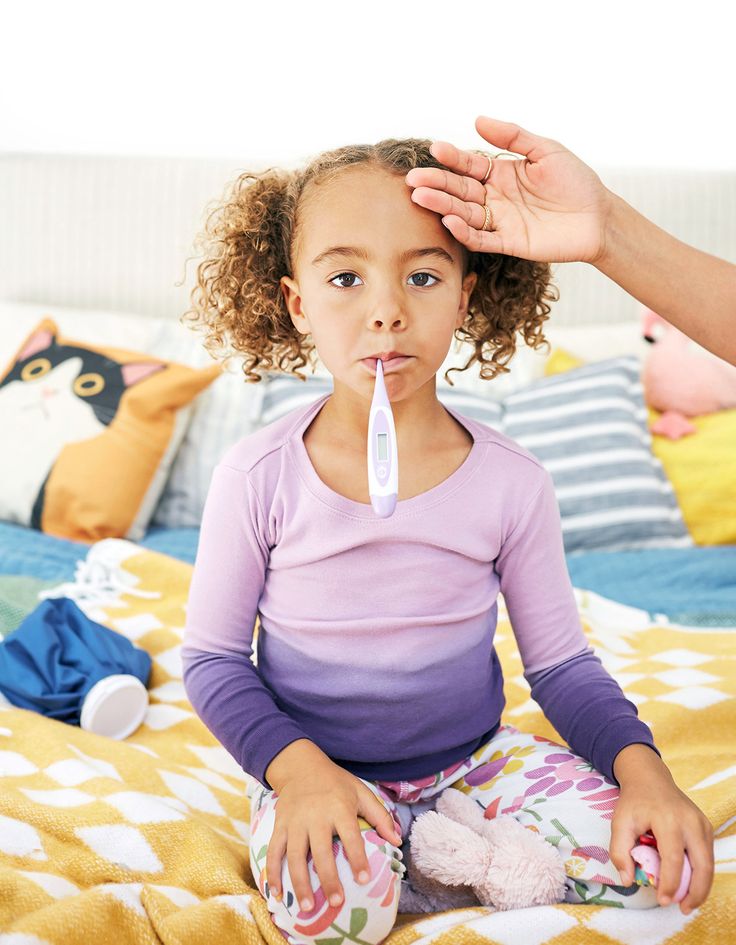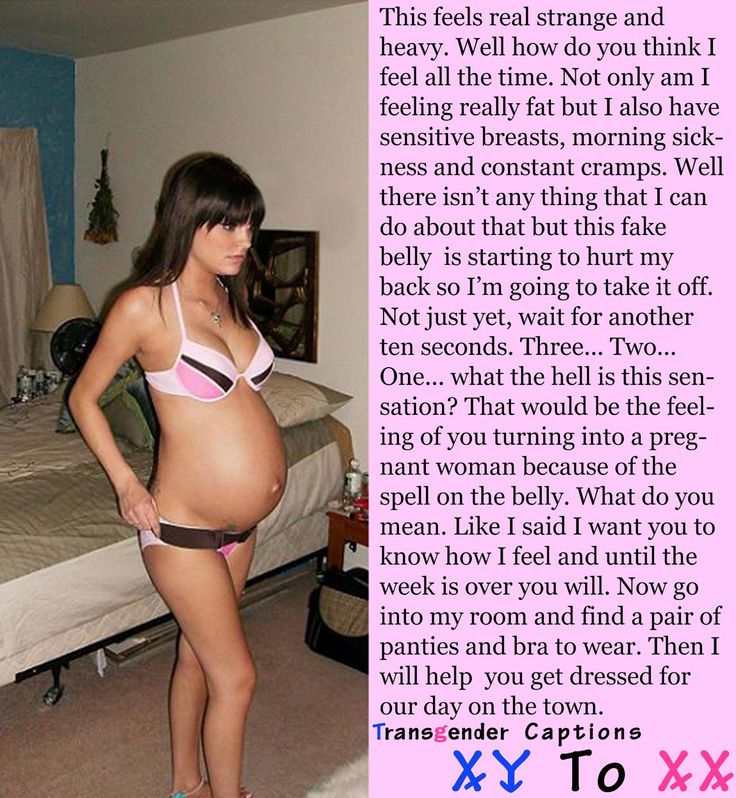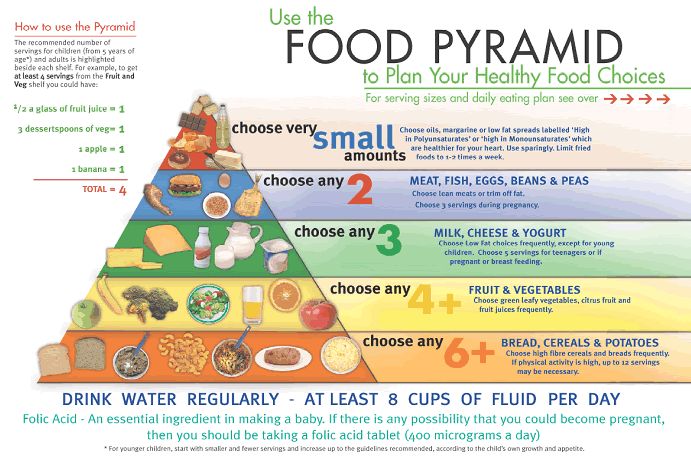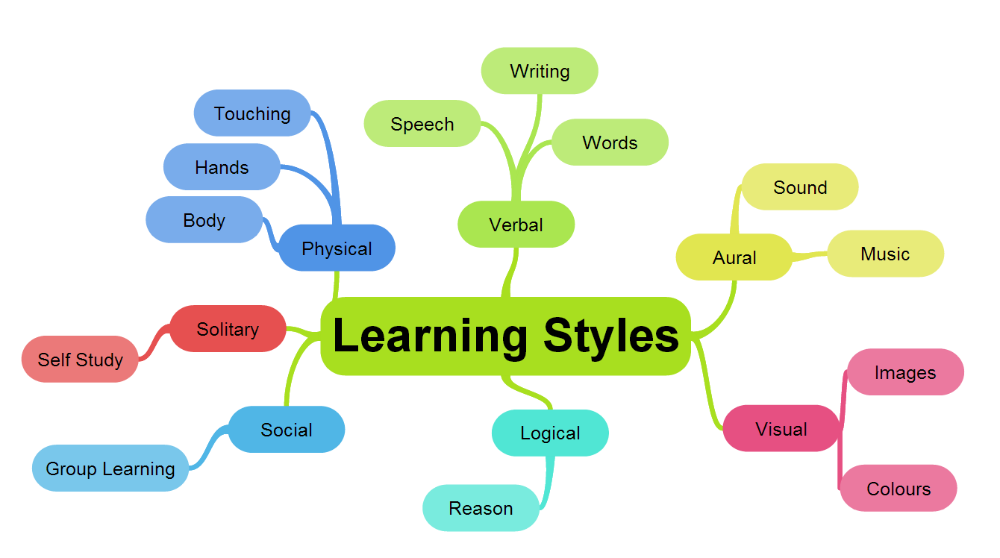6 month old with runny nose
Colds (0-12 Months)
Is this your child's symptom?
- Runny nose and sore throat caused by a virus
- You think your child has a cold. Reason: family members, friends or other children in child care have same symptoms.
- Also called an Upper Respiratory Infection (URI).
Symptoms of a Cold
- Runny or stuffy nose
- The nasal discharge starts clear but changes to gray. It can also be yellow or green.
- Most children have a fever at the start.
- At times, the child may also have a cough and hoarse voice. Sometimes, watery eyes and swollen lymph nodes in the neck also occur.
Cause of Colds
- Colds are caused by many respiratory viruses. Healthy children get about 6 colds in the first year.
- Influenza virus causes a bad cold with more fever and muscle aches.
- Colds are not serious. With a cold, about 5 to 10% of children develop a complication. Most often, this is an ear or sinus infection.
These are caused by a bacteria.
Trouble Breathing: How to Tell
Trouble breathing is a reason to see a doctor right away. Respiratory distress is the medical name for trouble breathing. Here are symptoms to worry about:
- Struggling for each breath or shortness of breath
- Tight breathing so that your child can barely cry
- Ribs are pulling in with each breath (called retractions)
- Breathing has become noisy (such as wheezes)
- Breathing is much faster than normal
- Lips or face turn a blue color
When to Call for Colds (0-12 Months)
Call 911 Now
- Severe trouble breathing (struggling for each breath, can barely cry)
- You think your child has a life-threatening emergency
Call Doctor or Seek Care Now
- Trouble breathing, but not severe. Exception: gone after cleaning out the nose.
- Wheezing (purring or whistling sound) occurs
- Breathing is much faster than normal
- Trouble swallowing and new onset drooling
- High-risk child (such as with chronic lung disease)
- Weak immune system.
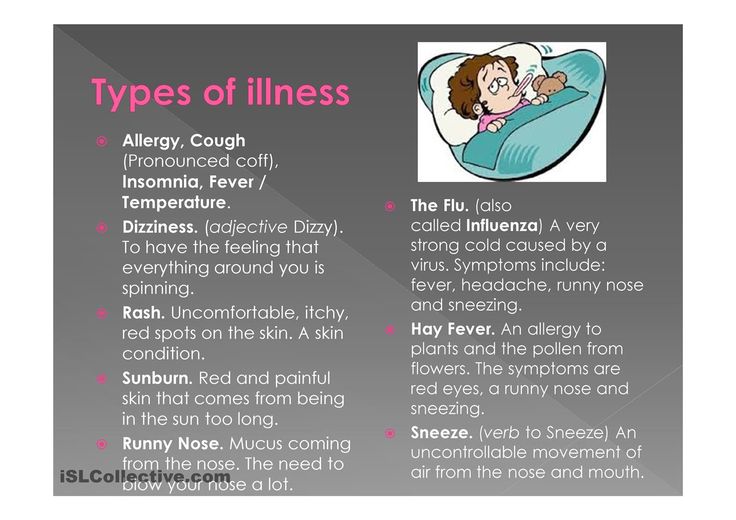 Examples are sickle cell disease, HIV, cancer, organ transplant, taking oral steroids.
Examples are sickle cell disease, HIV, cancer, organ transplant, taking oral steroids. - Fever over 104° F (40° C)
- Fever in baby less than 12 weeks old. Caution: Do NOT give your baby any fever medicine before being seen.
- Your child looks or acts very sick
- You think your child needs to be seen, and the problem is urgent
Contact Doctor Within 24 Hours
- Age less than 6 months old
- Earache or ear drainage
- Yellow or green pus from eyes
- Fever lasts more than 3 days
- Fever returns after gone for more than 24 hours
- You think your child needs to be seen, but the problem is not urgent
Contact Doctor During Office Hours
- Blocked nose wakes up from sleep
- Yellow scabs around the nasal openings. Use an antibiotic ointment.
- Nasal discharge lasts more than 2 weeks
- You have other questions or concerns
Self Care at Home
- Mild cold with no other problems
Seattle Children's Urgent Care Locations
If your child’s illness or injury is life-threatening, call 911.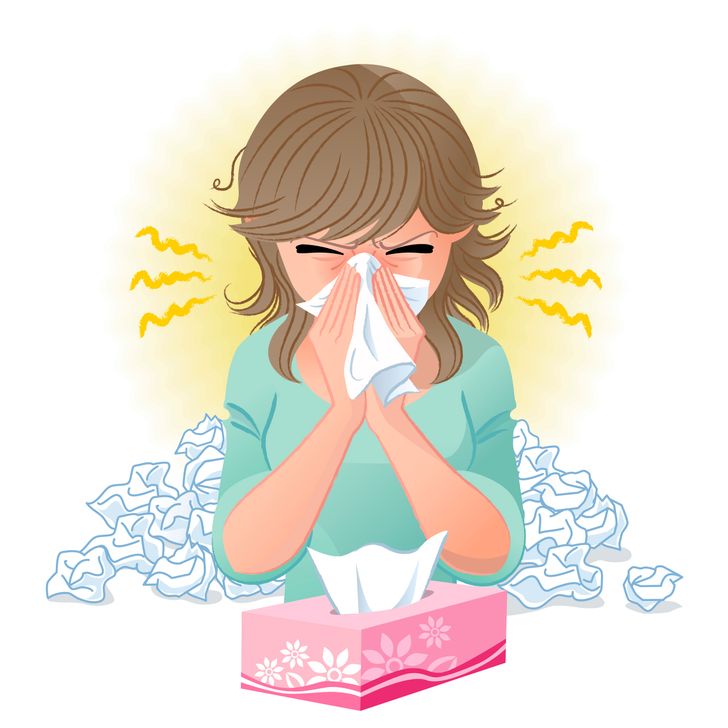
- Bellevue
- Everett
- Federal Way
- Seattle
- Virtual Urgent Care
Care Advice for a Cold
- What You Should Know About Colds:
- It's normal for healthy children to get at least 6 colds a year. This is because there are so many viruses that cause colds. With each new cold, your child's body builds up immunity to that virus.

- Most parents know when their child has a cold. Sometimes, they have it too or other children in child care have it. Most often, you don't need to call or see your child's doctor. You do need to call your child's doctor if your child develops a complication. Examples are an earache or if the symptoms last too long.
- The normal cold lasts about 2 weeks. There are no drugs to make it go away sooner.
- But, there are good ways to help many of the symptoms. With most colds, the starting symptom is a runny nose. This is followed in 3 or 4 days by a stuffy nose. The treatment for each symptom is different.
- Here is some care advice that should help.
- It's normal for healthy children to get at least 6 colds a year. This is because there are so many viruses that cause colds. With each new cold, your child's body builds up immunity to that virus.
- For a Runny Nose with Lots of Discharge: Suction the Nose
- The nasal mucus and discharge are washing germs out of the nose and sinuses.
- For younger children, gently suction the nose with a suction bulb.
- Put petroleum jelly on the skin under the nose.
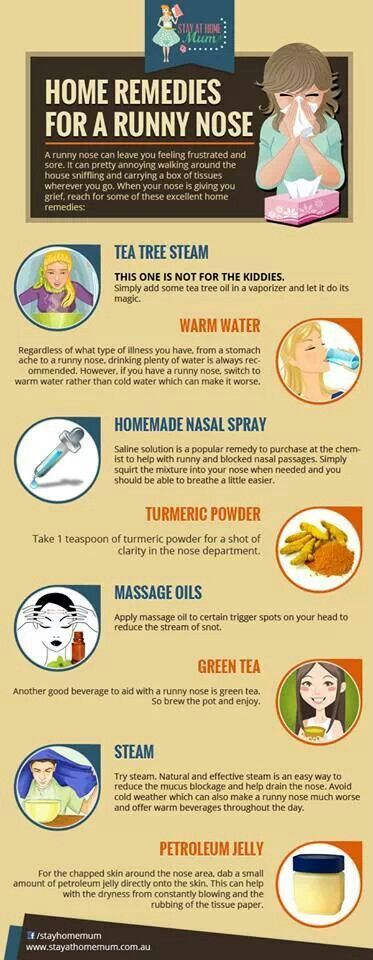 Wash the skin first with warm water. This will help to protect the nostrils from any redness.
Wash the skin first with warm water. This will help to protect the nostrils from any redness.
- Nasal Saline to Open a Blocked Nose:
- Use saline (salt water) nose spray to loosen up the dried mucus. If you don't have saline, you can use a few drops of water. Use distilled water, bottled water or boiled tap water.
- Step 1. Put 1 drop in each nostril.
- Step 2. Suction each nostril out while closing off the other nostril. Then, do the other side.
- Step 3. Repeat nose drops and suctioning until the discharge is clear.
- How Often. Do nasal saline rinses when your child can't breathe through the nose.
- Limit to no more than 4 times per day. Before breast or bottle feedings are a good time.
- Saline nose drops or spray can be bought in any drugstore. No prescription is needed.
- Reason for nose drops: Suction alone can't remove dried or sticky mucus. Also, babies can't nurse or drink from a bottle unless the nose is open.

- Other option: use a warm shower to loosen mucus. Breathe in the moist air, then suction each nostril.
- For young children, can also use a wet cotton swab to remove sticky mucus.
- Fluids - Offer More:
- Try to get your child to drink extra formula or breastmilk.
- Goal: Keep your child well hydrated.
- It also will thin out the mucus discharge from the nose.
- It also loosens up any phlegm in the lungs. Then it's easier to cough up.
- Humidifier:
- If the air in your home is dry, use a humidifier.
- Reason: Dry air makes nasal mucus thicker.
- Drugstore Medicines for Colds:
- Cold Medicines. Don't give any drugstore cold or cough medicines to young children. They are not approved by the FDA under 6 years. Reasons: not safe and can cause serious side effects. Also, they are not helpful. They can't remove dried mucus from the nose.
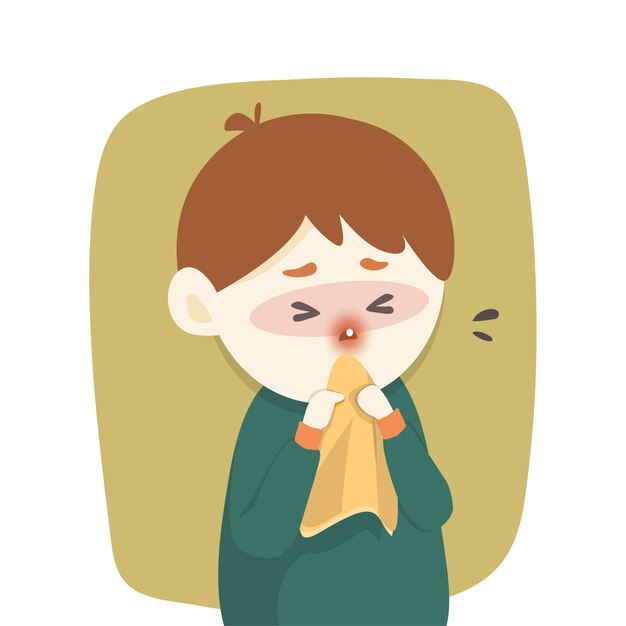 Nasal saline works best.
Nasal saline works best. - No Antibiotics. Antibiotics are not helpful for colds. Antibiotics may be used if your child gets an ear or sinus infection.
- Cold Medicines. Don't give any drugstore cold or cough medicines to young children. They are not approved by the FDA under 6 years. Reasons: not safe and can cause serious side effects. Also, they are not helpful. They can't remove dried mucus from the nose.
- Other Symptoms of Colds - Treatment:
- Pain or Fever. Use acetaminophen (such as Tylenol) to treat muscle aches, sore throat or headaches. Another choice is an ibuprofen product (such as Advil). Caution: avoid ibuprofen until 6 months or older. You can also use these medicines for fever above 102° F (39° C).
- Red Eyes. Rinse eyelids often with wet cotton balls.
- Return to Child Care:
- Your child can go back to child care after the fever is gone.
- For practical purposes, the spread of colds can't be prevented.
- What to Expect:
- Fever can last 2-3 days
- Nasal drainage can last 7-14 days
- Cough can last 2-3 weeks
- Call Your Doctor If:
- Trouble breathing occurs
- Earache occurs
- Fever lasts more than 3 days or goes above 104° F (40° C)
- Any fever if under 12 weeks old
- Nasal discharge lasts more than 14 days
- Cough lasts more than 3 weeks
- You think your child needs to be seen
- Your child becomes worse
And remember, contact your doctor if your child develops any of the 'Call Your Doctor' symptoms.
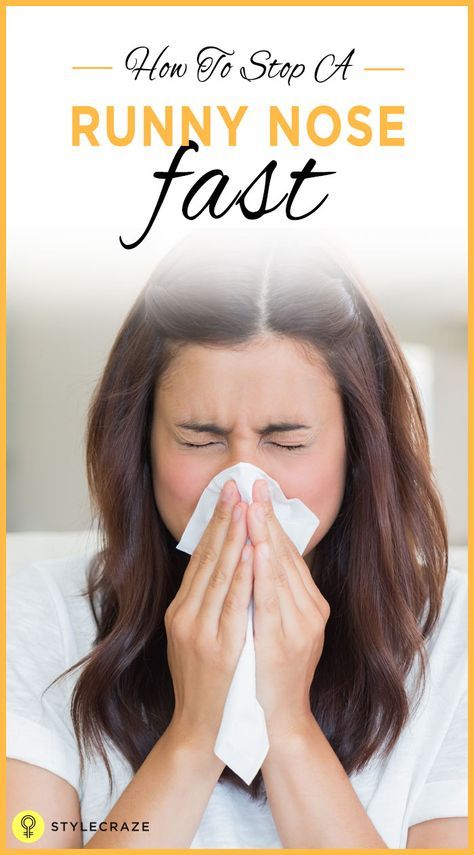
Disclaimer: this health information is for educational purposes only. You, the reader, assume full responsibility for how you choose to use it.
Last Reviewed: 02/25/2023
Last Revised: 12/30/2022
Copyright 2000-2023 Schmitt Pediatric Guidelines LLC.
Common cold in babies - Diagnosis and treatment
Diagnosis
If your baby is younger than 3 months of age, call his or her doctor early in the illness. In newborns, it's especially important to make sure that a more serious illness isn't present, especially if your baby has a fever.
In general, you don't need to see the doctor if your older baby has a common cold. If you have questions or if your baby's symptoms worsen or don't go away, it might be time to see the doctor.
Your baby's doctor can generally diagnose a common cold by your baby's signs and symptoms. If your doctor suspects your baby has a bacterial infection or other condition, he or she may order a chest X-ray or other tests to exclude other causes of your baby's symptoms.
Treatment
There's no cure for the common cold. Most cases of the common cold get better without treatment, usually within a week to 10 days, but a cough may linger for a week or more. Antibiotics don't work against cold viruses.
Try to make your baby more comfortable with measures such as making sure he or she drinks enough fluids, suctioning nasal mucus and keeping the air moist.
Over-the-counter (OTC) medications generally should be avoided in babies.
Fever-reducing medications
You can use OTC fever-reducing medications if a fever is making your child uncomfortable. However, these medications don't kill the cold virus. Fever is a part of your child's natural response to the virus, so it may help to allow your child to have a low-grade fever.
For treatment of fever or pain in children, consider giving your child infants' or children's over-the-counter fever and pain medications such as acetaminophen (Tylenol, others) or ibuprofen (Advil, Motrin, others). These are safer alternatives to aspirin.
These are safer alternatives to aspirin.
For children younger than 3 months old, don't give acetaminophen until your baby has been seen by a doctor. Don't give ibuprofen to a child younger than 6 months old or to children who are vomiting constantly or are dehydrated. Use these medications for the shortest time. If you give your child a pain reliever, follow the dosing guidelines carefully. Call your doctor if you have questions about the right dosage for your baby.
Children and teenagers recovering from chickenpox or flu-like symptoms should never take aspirin. This is because aspirin has been linked to Reye's syndrome, a rare but potentially life-threatening condition, in such children.
Cough and cold medications
Cough and cold medications aren't safe for infants and young children. OTC cough and cold medicines don't treat the underlying cause of a child's cold and won't make it go away sooner ⸺ and they can be dangerous to your baby.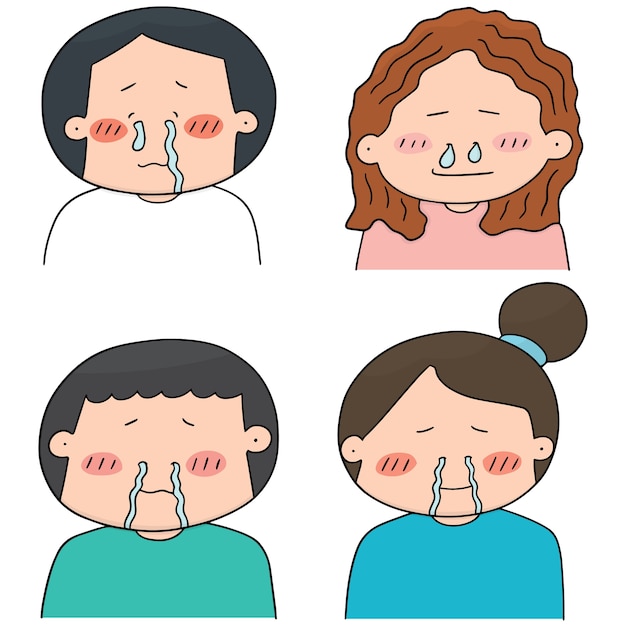 Cough and cold medications have potentially serious side effects, including fatal overdoses in children younger than 2 years old.
Cough and cold medications have potentially serious side effects, including fatal overdoses in children younger than 2 years old.
Don't use over-the-counter medicines, except for fever reducers and pain relievers, to treat coughs and colds in children younger than 6 years old. Also consider avoiding use of these medicines for children younger than 12 years old.
Request an Appointment at Mayo Clinic
From Mayo Clinic to your inbox
Sign up for free, and stay up to date on research advancements, health tips and current health topics, like COVID-19, plus expertise on managing health.
To provide you with the most relevant and helpful information, and understand which
information is beneficial, we may combine your email and website usage information with
other information we have about you. If you are a Mayo Clinic patient, this could
include protected health information.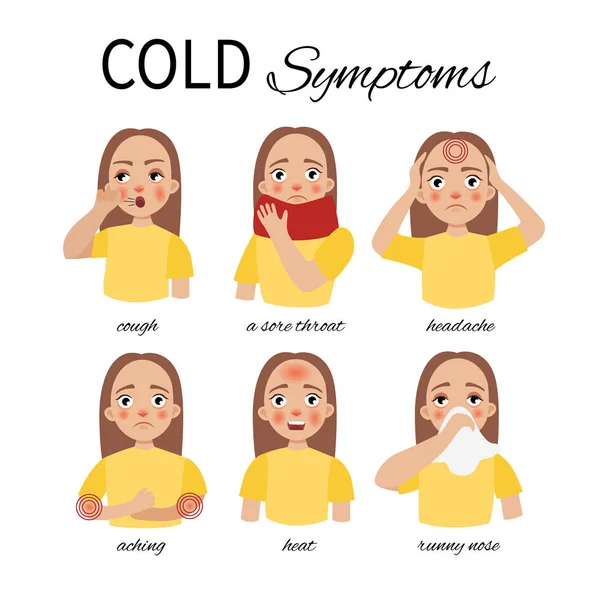 If we combine this information with your protected
health information, we will treat all of that information as protected health
information and will only use or disclose that information as set forth in our notice of
privacy practices. You may opt-out of email communications at any time by clicking on
the unsubscribe link in the e-mail.
If we combine this information with your protected
health information, we will treat all of that information as protected health
information and will only use or disclose that information as set forth in our notice of
privacy practices. You may opt-out of email communications at any time by clicking on
the unsubscribe link in the e-mail.
Lifestyle and home remedies
Most often, you can treat an older baby's cold at home. To make your baby as comfortable as possible, try some of these suggestions:
- Offer plenty of fluids. Liquids are important to avoid dehydration. Formula or breast milk is the best choice. Encourage your baby to take in the usual amount of fluids. Extra fluids aren't necessary. If you're breastfeeding your baby, keep it up. Breast milk offers extra protection from cold-causing germs.
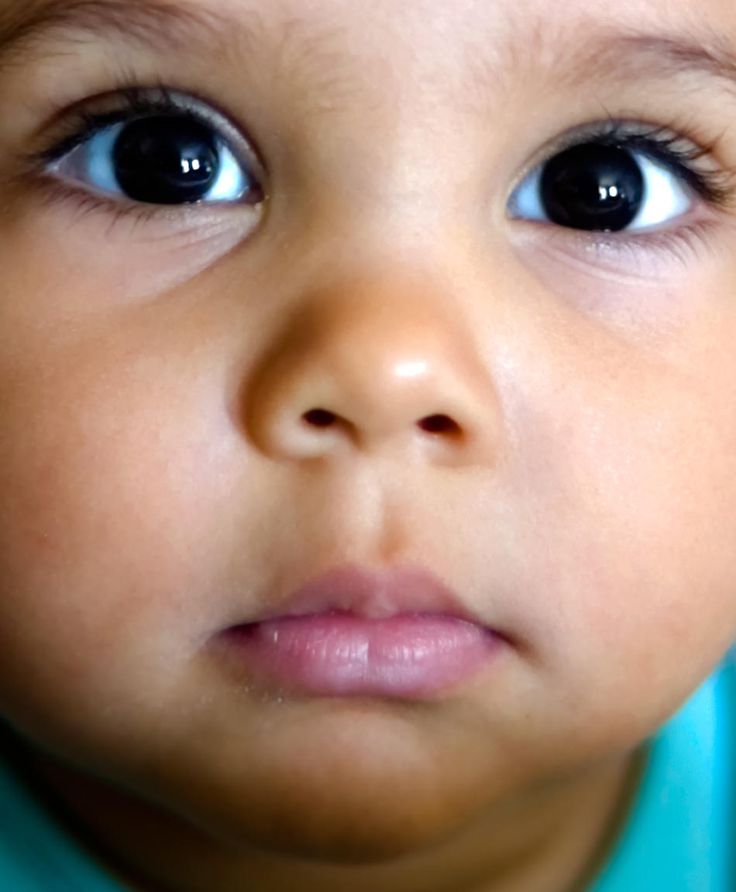
-
Suction your baby's nose. Keep your baby's nasal passages clear with a rubber-bulb syringe. Squeeze the bulb syringe to expel the air. Then insert the tip of the bulb about 1/4 to 1/2 inch (about 6 to 12 millimeters) into your baby's nostril, pointing toward the back and side of the nose.
Release the bulb, holding it in place while it suctions the mucus from your baby's nose. Remove the syringe from your baby's nostril and empty the contents onto a tissue by squeezing the bulb rapidly while holding the tip down. Repeat as often as needed for each nostril. Clean the bulb syringe with soap and water.
- Try nasal saline drops. Your baby's doctor may recommend saline nasal drops to moisten nasal passages and loosen thick nasal mucus. Look for these OTC drops in your local pharmacy. Apply saline nasal drops, wait for a short period, and then use a suction bulb to draw mucus out of each nostril.
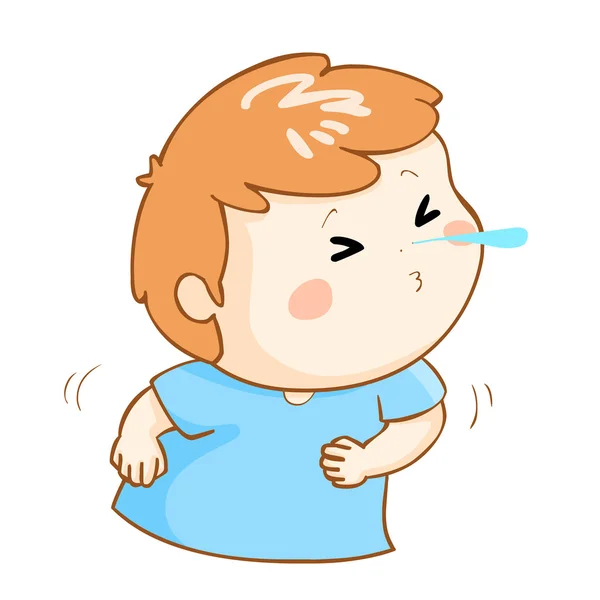
- Moisten the air. Running a cool-water humidifier in your baby's room can ease nasal congestion. Change the water daily and follow the manufacturer's instructions for cleaning the unit.
Preparing for your appointment
If you need to see your baby's pediatrician or family doctor, here's some information to help you get ready for your baby's appointment.
What you can do
Make a list of:
- Symptoms you've noticed in your baby, including any that may seem unrelated to the reason for which you scheduled the appointment.
- Key personal information, such as whether your baby goes to child care or has otherwise been exposed to someone with a common cold. Include how many colds your baby has had, how long they lasted and whether your baby is exposed to secondhand smoke. It might help to make a note on your calendar the day you realize your baby has a cold.
- All medications, vitamins or supplements your baby is taking, including dosages.
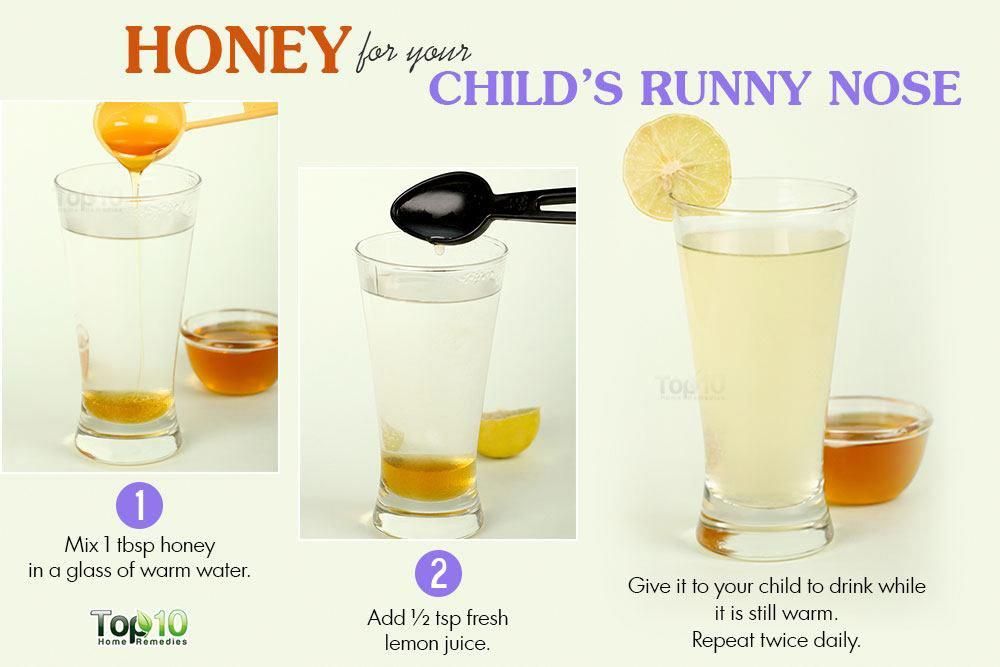
- Questions to ask your doctor.
For a common cold, some questions to ask the doctor include:
- What is likely causing my baby's symptoms?
- Are there other possible causes?
- What tests are needed?
- What's the best course of action?
- My baby has other health conditions. How can I best manage them together?
- Are there restrictions we need to follow?
- Are there over-the-counter medications that aren't safe for my child at this age?
Don't hesitate to ask other questions you have.
What to expect from your doctor
Your baby's doctor is likely to ask you questions, including:
- When did your baby's symptoms begin?
- Have they been continuous or occasional?
- How severe are they?
- What, if anything, seems to improve them?
- What, if anything, appears to worsen them?
- Has the nasal congestion caused your baby to eat or drink less?
- Is your baby having as many wet diapers as usual?
- Has there been a fever? If so, how high?
- Are your child's vaccinations up to date?
- Has your child taken antibiotics recently?
Your doctor will ask additional questions based on your responses and your baby's symptoms and needs.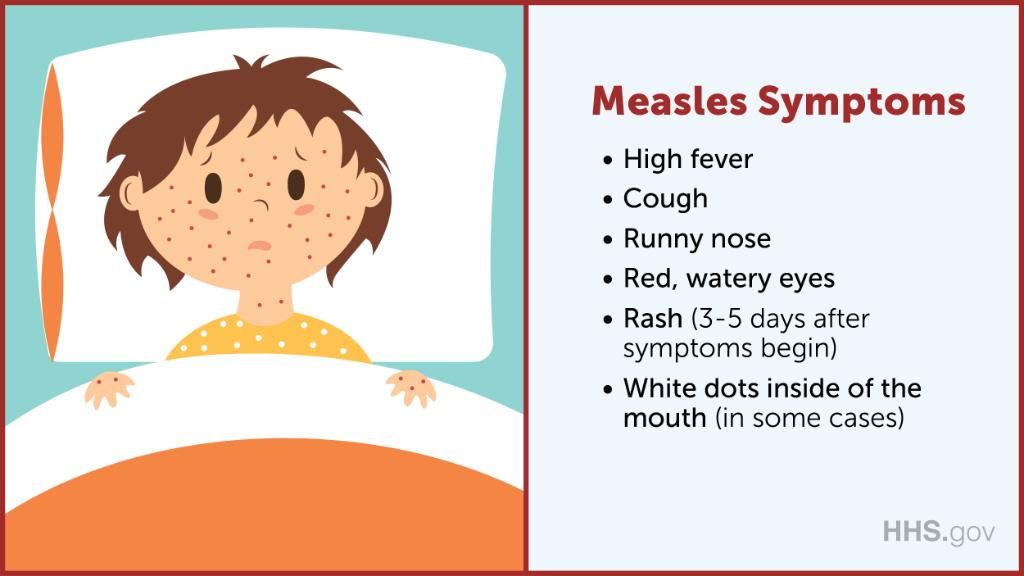 Preparing and anticipating questions will help you make the most of your time with the doctor.
Preparing and anticipating questions will help you make the most of your time with the doctor.
By Mayo Clinic Staff
Related
Products & Services
Runny nose in a baby causes and treatment
Snot in a baby appears very often, but not all parents understand how dangerous or harmless it is and what to do if their baby has a runny nose.
A runny nose in infants is not always due to the addition and development of the disease, it can also have completely physiological causes associated with the age and development of the child's body during this tender period.
As with any other pathological condition, there may be causes for a runny nose in infants.
- physiological;
- pathological.
Physiological reasons
Immediately after birth, the mucous membrane of the nasal cavities, although it is formed correctly, cannot fully perform its functions, participate in the regulatory mechanisms of the body.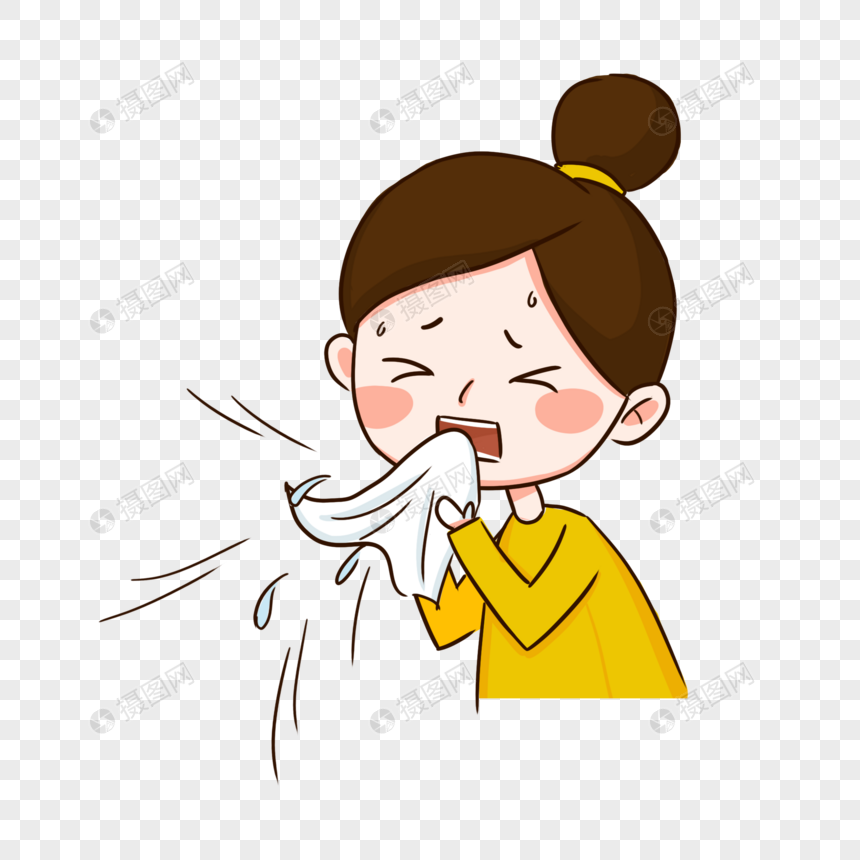 In some children, this leads to excessive dryness of the nasal cavity with insufficient secretion production, while in others to its abundant secretion - a newborn runny nose.
In some children, this leads to excessive dryness of the nasal cavity with insufficient secretion production, while in others to its abundant secretion - a newborn runny nose.
Mucosal function returns to normal only after reaching 10 months of age. It's not worth worrying. This is not dangerous and should go away on its own over time, but the ENT doctors of Dr. Korenchenko's clinic advise you to go to the pediatrician. so as not to miss the beginning of the development of the pathological process behind imaginary well-being.
Pathological causes
The most common cause is colds, which are particularly common in newborns. Own immunity has not yet been formed, and maternal immunity is not always effective enough and, moreover, is weakening every day. Any infection that for an adult or older child will go completely unnoticed in a newborn can cause acute respiratory infections and a runny nose.
The first symptoms of an acute infectious disease are fever and a runny nose. Later, cough, shortness of breath, shortness of breath join. Sleep and appetite disorders. The child becomes restless, cries, refuses to eat. Abundant snot in infants causes irritation of the skin around the nose, on the upper lip, in the nasolabial folds. At the first appearance of such symptoms, we strongly advise you to contact your pediatrician immediately.
Another common cause of a newborn's runny nose is an allergic reaction to an external irritant. With age and with the formation of one's own full-fledged immune defense, this disease can go away on its own, but in infancy, intolerance to any substances is more common than in adults. Irritants can be ordinary household dust, pet or bird hair, extraneous odors, creams and preparations that treat the baby's skin, even the smell of the mother and breast milk can provoke snot in the baby.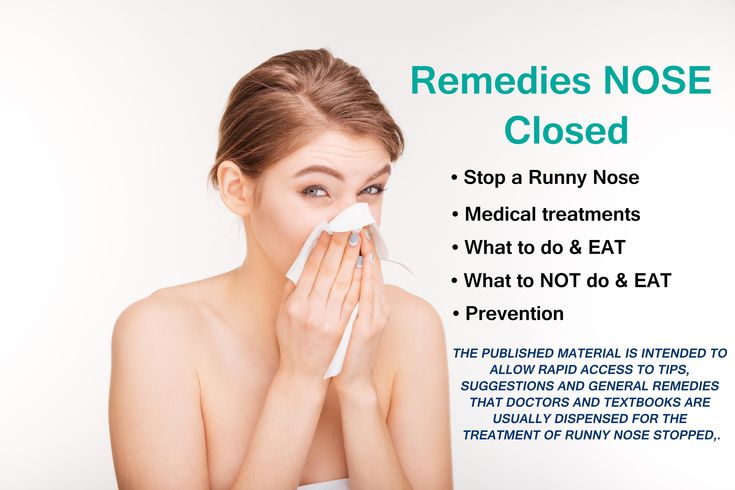
Relatively infrequently, the cause of snot in infants is vasomotor rhinitis, a disease associated with impaired blood supply to the nasal mucosa. The correct diagnosis can only be established by a doctor.
Treatment
To free the nasal passages, use special micro-suckers or a small enema, but only for suctioning the secretions, not for washing. The pear cannula or enema should be inserted with caution and very shallowly, only 0.5-0.8 cm deep into the nasal passage.
Any folk or healer's remedies, potions or manipulations can be performed only after agreement with the doctor. Uncontrolled self-medication can harm the baby. Too tender age for a child to take such risks!
Medicines should only be used as prescribed by a doctor, strictly following his instructions and recommendations. Only a doctor can accurately determine the condition of the child and correctly prescribe the treatment of a runny nose in infants with medications.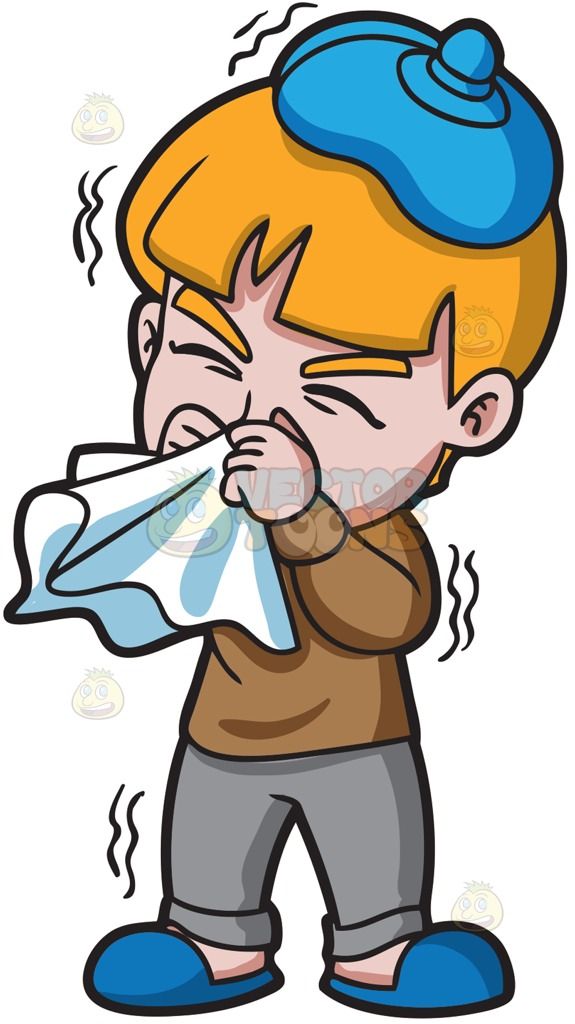
Most commonly prescribed drugs
- Aqua Maris;
- Aqualor Baby;
- Nazol Baby;
- Otrivin Baby;
- Doctor Mom;
- Saline;
- Nazivin for children.
Please note that all listed preparations have the prefix "baby" or "children's". It is impossible to use adult medicines to treat a runny nose in infants.
Physiological runny nose in infants does not need treatment, but only a doctor can determine the absence of pathology.
DO NOT!
- use an enema to wash the sinuses with fluid injection. A pear and an enema can only be used to suck snot from a baby, and then with caution;
- independently prescribe antibacterial and antiviral drugs;
- use vasoconstrictor nasal drops and sprays without medical advice.

Remember! At this age, the baby's health is very fragile. Having taken up the treatment of a runny nose in a baby on your own or according to the recipes of familiar grandmothers, instead of improving your health, you can do much harm to him.
It is impossible to leave a runny nose in a baby without treatment. With the pathological nature of the process, the disease will progress and can cause the development of serious and life-threatening complications for the infant.
Prevention of the common cold in infants
See also
Treatment of ENT diseases
Snot in a child
Chronic rhinitis
Treatment of rhinitis
Maintain an optimal microclimate in the room where the child is. The air temperature should be within 18-22 degrees, you can not leave him naked for a long time, regularly ventilate the room, after taking the baby out of it, get rid of dust, limit the baby from contact with pets and minimize contact with strangers.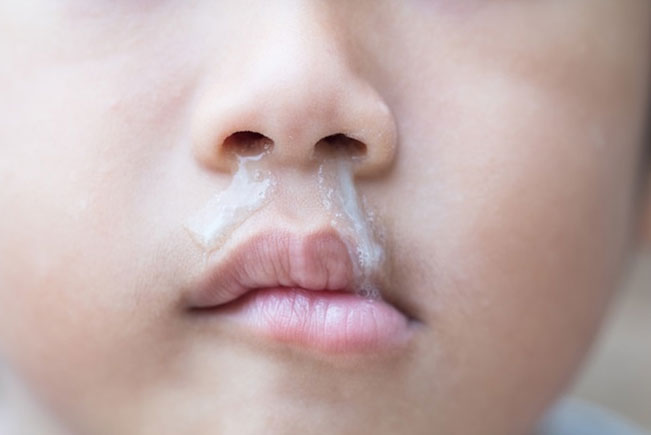 Use caution when changing infant formula when formula-fed or when introducing supplements and complementary foods into the diet.
Use caution when changing infant formula when formula-fed or when introducing supplements and complementary foods into the diet.
How to treat a runny nose in a newborn baby?
A runny nose in a newborn or infant under one year of age is most often caused by a cold, an acute viral respiratory infection (ARVI). It is not uncommon for family members, friends, or other children to have symptoms of a cold at the same time. Unfortunately, it is almost impossible to prevent the spread of the common cold.
Common cold symptoms
- Runny or stuffy nose
- Discharge from the nose: at first clear, but then becomes gray. They may also turn yellow or green.
- Most children develop a fever first.
- Occasionally, the child may also have a cough and a hoarse voice. Sometimes there is also watery eyes and swollen lymph nodes in the neck.
Cause of the common cold
Many respiratory viruses cause colds.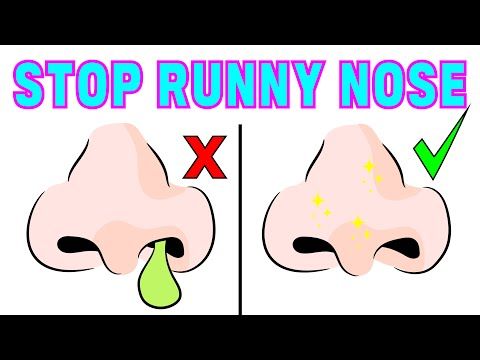 Healthy children in the first year of life have about 6-8 colds. This is because there are so many viruses that cause colds. With each new cold, the child's body develops immunity to this virus. The flu virus causes a more severe cold with fever and muscle pain. A cold is usually a mild illness. However, with a cold, 5-10% of babies have complications. Most often it is an infection of the ear or sinuses, which are caused by bacteria.
Healthy children in the first year of life have about 6-8 colds. This is because there are so many viruses that cause colds. With each new cold, the child's body develops immunity to this virus. The flu virus causes a more severe cold with fever and muscle pain. A cold is usually a mild illness. However, with a cold, 5-10% of babies have complications. Most often it is an infection of the ear or sinuses, which are caused by bacteria.
What to expect when a baby has a cold?
- Fever may last 2-3 days.
- Runny nose can last 7-14 days.
- Cough may last 2-3 weeks.
Can a cold be dangerous?
The most serious complication in infants is breathing problems. Respiratory failure is the medical term for difficulty breathing. The following are symptoms that should immediately consult a doctor or call an ambulance:
- Difficulty with each breath or shortness of breath
- Difficulty breathing so much that the baby can hardly cry
- Rib spaces retract with each breath
- Breathing has become noisy (eg, wheezing)
- Breathing much faster than usual
- Baby's lips or face turn blue
- Wheezing (purring or whistling)
- Breathing much faster than usual
- Problems with swallowing and salivation
When else should you call a doctor for a cold?
- You think your child is in a life-threatening situation
- Mild breathing problems that do not disappear after nasal cleansing.

- High-risk child (e.g. chronic lung disease)
- Weak immune system: sickle cell anemia, HIV, cancer, organ transplant, oral steroids.
- Temperature above 40 °C
- Fever in a child under 12 weeks old.
- Pain in the ear or discharge from the ear
- Yellow or green pus from the eyes
- Fever persisting for more than 3 days
- Fever returns after being gone more than 24 hours ago
- Temperature persists for more than 3 days or rises above 40°C (104°F).
- Nasal discharge continues for more than 14 days.
- Cough lasts more than 3 weeks
Most newborn baby colds are runny noses. After 3-4 days, nasal congestion also appears. Mucus and secretions from the nose perform a healing and protective function: they wash germs out of the nose and sinuses. In addition, babies cannot breastfeed or drink from a bottle normally if their nose is not breathing.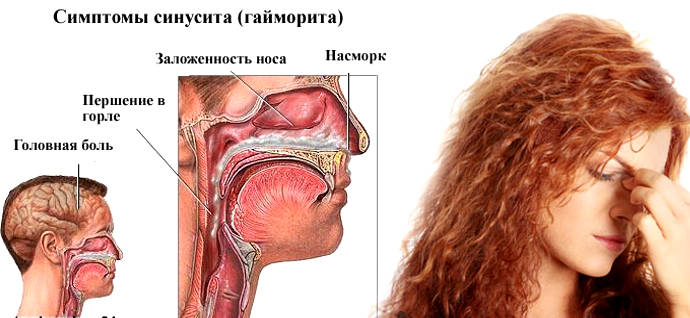
Normally, a runny nose can last about 2 weeks. There are no medications or treatments that will shorten the duration of a runny nose in a child. But there are good ways to alleviate many of the unpleasant moments with a cold and prevent the development of complications. Here are some basic tips for caring for a newborn with a runny nose that should help ease his condition:
- If you have a runny nose with profuse discharge, you need to aspirate nasal discharge.
- To protect the skin around the nose from irritation, it is necessary to apply a moisturizing ointment after rinsing the skin with warm water. This will help protect the nostrils from redness.
- A stuffy nose should be flushed with saline or sterile seawater to help reduce swelling and clear mucus.
A saline nasal spray can also be used to loosen dry mucus (“crusts”). If you don't have saline on hand, you can make your own or use bottled water or boiled tap water.
Do you have any questions?
Get an online consultation with leading pediatricians Petersburg!
A professional and experienced pediatrician will answer your questions.
Medical care for a child without leaving home at a convenient time.
book an appointment
Skype consultation lasts 45 minutes.
How to rinse the nose of a newborn or infant with a runny nose?
Flush the nose with saline if the child cannot breathe through the nose. It is necessary to drip drops into the nose when washing, since it is impossible to remove dried or sticky mucus by suction alone.
Step 1. Put 1 drop of saline into each nostril.
Step 2. Aspirate mucus from one nostril while closing the other nostril. Then repeat the operation on the other side.
Step 3. Repeat nasal drops and suction until the discharge disappears.
Wash your nose no more than 4 times a day or before each feeding. Salt nasal drops or spray can be bought at any pharmacy. A prescription is not required for this. For young children, a damp cotton swab can also be used to remove sticky mucus. To thin the nasal mucus, give your baby more breast milk or formula to keep the baby adequately hydrated.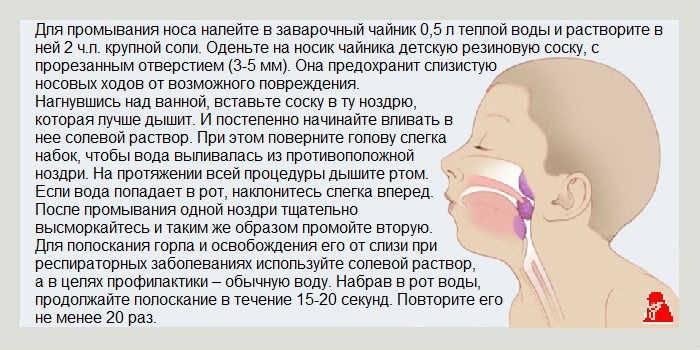 This will help thin out the nasal discharge better. Moisture also helps loosen phlegm in the lungs, making it easier for your baby to cough up. If the air in the house is dry, a humidifier should be used, as the dryness of the inhaled air makes nasal mucus thicker.
This will help thin out the nasal discharge better. Moisture also helps loosen phlegm in the lungs, making it easier for your baby to cough up. If the air in the house is dry, a humidifier should be used, as the dryness of the inhaled air makes nasal mucus thicker.
Do I need to use any medicine from a pharmacy for a cold in newborns?
It is not recommended to give young children (under 6 years of age) any cold medicine. The reason for this is that these drugs are not safe for babies and can cause serious side effects. In addition, they are useless: they will not help to remove dried mucus from the nose. Normal nasal saline solution or sterile sea water is best suited for this purpose.
Children with colds and runny noses should not be given antibiotics. They don't help colds. A doctor may prescribe them only if the child develops an ear or sinus infection.
For fever and pain, acetaminophen (such as Tylenol) can be used to treat muscle pain, sore throat, or headaches.